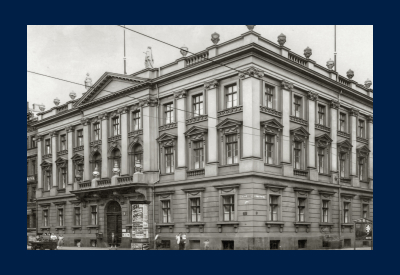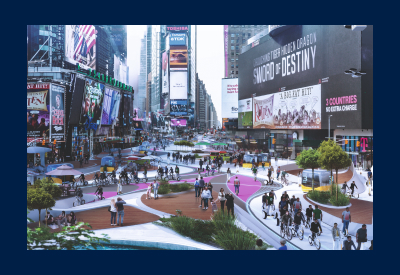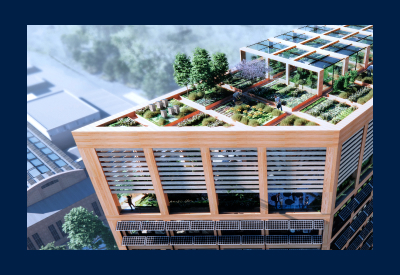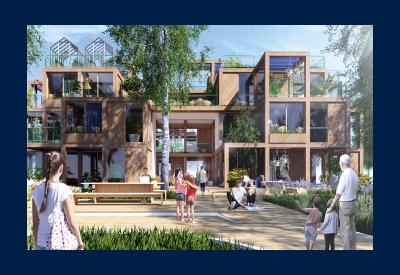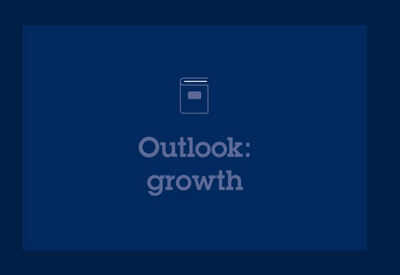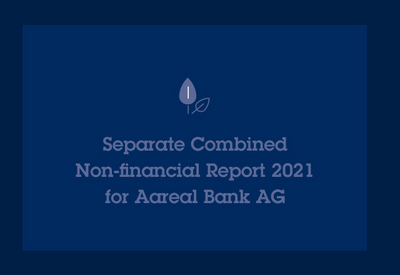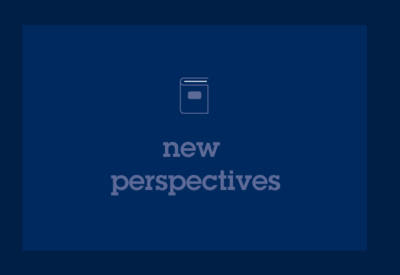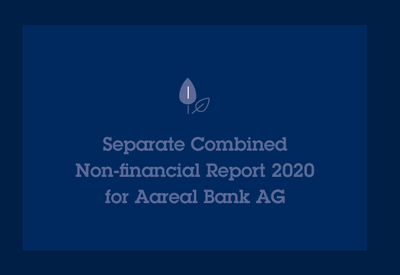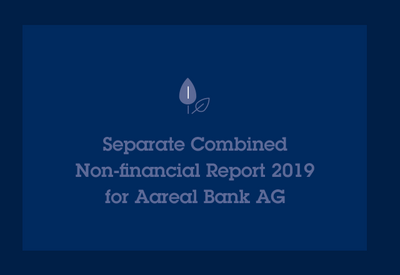YOUR COMPETITIVE ADVANTAGE.
The city of
tomorrow
The city of tomorrow
The future belongs to the city – COVID-19 and slowing urbanisation in the West have not changed that. But far-reaching changes are needed to maintain the quality of life in urban areas, changes that will impact on business models in the property, housing and energy sectors.
Cities account for roughly half of the world's population. The United Nations has forecast that this figure will even rise to around 70 % by 2050. The European Union and the USA reached that level of urbanisation long ago, with 75 to 83 % of the population currently living in urban areas, and rising daily.
Cities in transition
This has left infrastructure in many cities stretched thin. Cities not only have to provide additional space for people to live, work and gather, but also upscale transportation and energy systems to cope with the growing number of residents. Last but not least, as standards of living increase, they also have to accommodate higher expectations about individuality, mobility, digitalisation and sustainability.
At the same time, the way that people work and live together is changing. Things like online shopping and the shift to remote working are giving rise to new habits and expectations, as is the rising demand for smaller homes and the growing importance of the sharing economy. Moreover, as the average age of the population increases, there is a need for new utilities, health care and community structures. All the while, meeting global sustainability targets poses completely new challenges for city and property planning.
Looking for a fresh approach
Cities are finding themselves in an unparalleled transformation process. They have to be greener and healthier, safer and smarter, less centralised and more social. New terms are constantly emerging to describe the latest city planning concepts, like "15 minute city", "vertical villages" and "third places", or "responsive city", "urban manufacturing" and "urban farming".
One thing is certain: the city of tomorrow will be entirely different from the city of today.
Profound change is taking place – virtually across the board. New concepts are needed for energy, telecommunications, mobility, shopping, culture and sports, education and waste management, just to name a few.
"The city of tomorrow is full of opportunities for property investors. Our decades of experience and extensive industry expertise enable us to support our clients in identifying and taking advantage of these opportunities."

Bettina Graef-Parker
Managing Director Special Property Finance
Aareal Bank
The city as a driving force
The fact that cities only account for two per cent of the earth's surface but consume 75 % of globally required energy demonstrates just how urgently these new concepts are needed. Designing cities in a climate-neutral way would be a critical contribution towards achieving the 1.5-degree target adopted by the international community.
However, that would mean that the buildings in cities would need to decarbonise significantly because buildings are responsible for roughly 40 % of all greenhouse gas emissions globally, three quarters of which are emitted during operations. Making buildings as climate-neutral as possible requires tremendous investment in renovation and reconstruction, and poses great challenges that property owners and banks will only be able to overcome by working hand in hand. But if those buildings are left without energy upgrades, it could cause a massive blow to property values.
Putting business models to the test
All these changes also impact on the business models of companies active in the property, housing and energy sectors. The services they offer all have to accommodate the profound transformation taking shape in cities.
Property investors need to figure out what asset classes have a promising future in the city of tomorrow and which property concepts will have traction within those asset classes. Do office buildings have to be reconceived entirely? Do hotels and shopping centres need to reinvent themselves? And what requirements do residential buildings and logistics facilities need to meet in the city of tomorrow?
Companies that service the housing, property and energy sector need to figure out whether their business model will survive in the city of tomorrow, because even though new demands are emerging, new providers are entering the market and sectors are merging as digitalisation progresses. This all revolves around what business areas will still be profitable and competitive tomorrow and what needs to be done to capture them and/or expand there.
"We are continuously developing our products and innovating is extremely important to us, which means that our clients can meet more stringent sustainability requirements head on and set themselves up for the future."

René Steurer
Managing Director Group Strategy
Aareal Bank
Your career with us
Why does career mean more than just work to us? Click here to find out what sets us apart and how we can grow together.

More information about the city of tomorrow:
Zukunftsinstitut | urbanisation: The city of tomorrow (only available in German)
The Zukunftsinstitut describes the urbanisation mega trend and associated sub-trends in this article.
BMZ | city and climate
The German Ministry for Economic Cooperation and Development (BMZ) explains why cities are important in the context of sustainable development.
ESKP | cities and climate change
The Earth System Knowledge Platform of the Helmholtz Association offers dozens of articles and facts on the future of cities.
#stadtvonmorgen | The platform for city transformation (only available in German)
The F.A.Z. BUSINESS MEDIA GmbH online platform offers numerous in-depth articles and news on the topic of city transformation.
Image concept
3deluxe: the architects breaking with conventional perspectives
Building the future requires new design ideas for living and working space.
Only a few architectural firms around the world consistently centre their work around their visions. Among them is a group of professionals headquartered in Wiesbaden – just like Aareal Bank. The 40 architects working at 3deluxe develop impressive and multi-award-winning studies and projects that deliberately break with conventional perspectives. They also focus on interconnectivity and sustainability – for modern urban development, ground-breaking office buildings, and flexible residential structures.
We are publishing this year’s Annual Report under the motto “Building your tomorrow”, which verbalises our aim to enter into dialogue with the pioneers of our future – a good reason for letting the visions of 3deluxe inspire the image concept of this Annual Report.
3deluxe: the architects breaking with conventional perspectives
